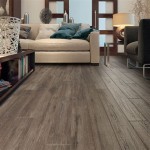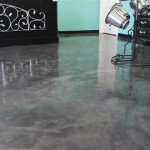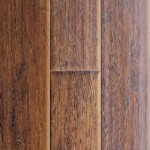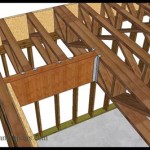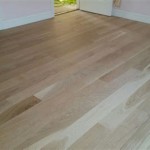Quality Hardwood Flooring: Exploring the Essential Aspects
Hardwood flooring has been a timeless choice for homeowners due to its elegance, durability, and versatility. However, not all hardwood flooring is created equal. Understanding the essential aspects of quality hardwood flooring will help you make an informed decision that enhances the beauty and value of your home.
Species and Hardness
The type of hardwood species you choose will significantly impact the flooring's durability, appearance, and price. Common species include oak, maple, walnut, and cherry. Each species offers distinct grain patterns, colorations, and hardness ratings. Consider high-traffic areas when selecting flooring, as harder species like oak and maple resist scratches and dents better than softer options.
Grading
Hardwood flooring is graded based on its appearance and the presence of natural characteristics such as knots and color variations. Premium grades, such as Clear or Select, feature few imperfections and uniform color. Lower grades, like #1 Common or #2 Common, may have more knots and color variations, resulting in a more rustic appearance. The grading you choose depends on your personal preferences and the overall aesthetic you desire.
Construction
Hardwood flooring comes in solid or engineered construction. Solid hardwood planks are made from a single piece of wood, providing unmatched durability and a timeless appeal. However, it is more prone to expansion and contraction due to moisture fluctuations. Engineered hardwood consists of a thin layer of real wood bonded to a plywood or HDF (high-density fiberboard) core. This construction makes engineered hardwood more stable and resistant to moisture, making it suitable for areas like kitchens and bathrooms.
Finish
The finish protects the hardwood flooring from wear and tear. Common finishes include polyurethane, lacquer, and oil. Polyurethane is known for its durability, while lacquer provides a high-gloss shine. Oil finishes penetrate the wood, enhancing its natural grain and creating a warm, inviting atmosphere. The choice of finish depends on your desired aesthetic and lifestyle.
Installation
Proper installation is crucial for the performance and longevity of hardwood flooring. Professional installers ensure the flooring is leveled, securely fastened, and sealed against moisture. They also take into account expansion gaps and transitions between rooms. DIY installation can be challenging, especially for larger or complex projects, and may void manufacturer warranties.
Maintenance
Maintaining hardwood flooring is essential to preserve its beauty and lifespan. Regular sweeping or vacuuming removes dirt and debris. Avoid using harsh cleaning agents or excessive water. Occasional deep cleaning with a hardwood floor cleaner is recommended to remove any remaining dirt and restore the flooring's shine. Additionally, placing protective mats under heavy furniture and using coasters for drinks helps prevent scratches and dents.
Conclusion
Choosing and installing quality hardwood flooring requires careful consideration. By understanding the essential aspects discussed here, homeowners can make informed decisions that result in exceptional flooring that enhances the ambiance and value of their home. From species and grading to construction, finish, and maintenance, every aspect contributes to the durability, beauty, and longevity of this timeless flooring option.

How Can You Tell Top Quality Hardwood Floors From The Forest Llc

The 15 Best Hardwood Floor Brands Real Info Reviews Floorings

Best Types Of Hardwood Flooring Floor Guide

Best Hardwood Floors For High Traffic Areas Ub Hardwoods Blog

Best Hardwood Flooring Alternatives For Your Home Homelane Blog

What Is The Best Hardwood Flooring For Kitchens And Why Impressions Collection

Best Types Of Hardwood Flooring Floor Guide

Quality Hardwood Flooring Beauty And Joy At Every Step

What S The Best Type Of Hardwood Flooring

How Hard Can It Be To Choose A Hardwood Floor The New York Times
Related Posts

